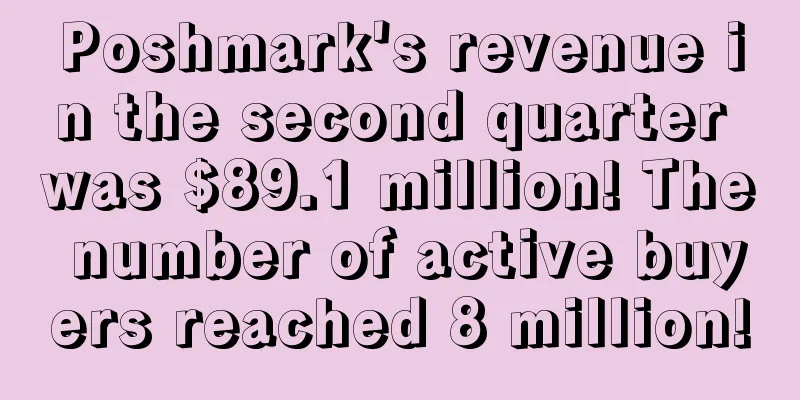What is Blackstone Group? Blackstone Group Review

Blackstone Group, also known as Blackstone Group, was founded in 1985 and is headquartered in New York, USA. It has more than 20 offices around the world and nearly 18,000 employees. Blackstone Group is one of the world's largest independent alternative asset management institutions and a financial consulting service organization. Blackstone Group was founded in 1985 by Stephen Schwarzman. Website : https://www.blackstone.com/Founder IntroductionStephen Schwarzman, founder and CEO of Blackstone Group, was an investment banker at Lehman Brothers before founding Blackstone Group. He was promoted to partner of Lehman Brothers due to his excellent performance. introduceBlackstone Group is known as the "King of Global Private Equity" and is regarded as the new generation of Wall Street king that will replace Goldman Sachs, Morgan Stanley and other investment banks. Taking the global financial crisis as an opportunity, Blackstone Group has achieved leapfrog development by investing in private equity, real estate, credit and hedge funds around the world, and providing mergers and acquisitions, restructuring consulting and fund raising services through private equity funds, real estate funds, customized hedge fund solution funds, credit-oriented funds and listed closed-end mutual funds. Brand OriginThe word "Black Stone" comes from the two founders' commemoration of their ancestral hometowns: their surnames contain the German word "black" and the Greek word "stone" respectively. Business IntroductionBlackstone Group's business segments mainly consist of four parts. The first is the private equity segment (Private + Equity), which manages nearly US$94.3 billion in assets by 230 investment experts worldwide. It includes the company's private equity funds, tactical investments, a multi-asset investment platform (BTAS) business serving high-net-worth clients, and capital market services. The second is the real estate sector (Real + Estate), which manages nearly US$94 billion in assets by 265 investment experts, including a series of global, European and Asian real estate funds, some real estate debt investment tools, and real estate investment trusts (BXMT) publicly traded on the Nasdaq. The third is Hedge+Fund+Solutions, which has 165 experts managing nearly $69.1 billion in assets. This sector mainly refers to Blackstone Alternative Asset Management (BAAM), including funds that manage various types of hybrid and customized hedge funds, cultivate new hedge fund talents or invest in special opportunities. The fourth is the Credit sector, which has 160 experts managing nearly $79.1 billion in assets, mainly composed of GSO+Capital+Partners+LP+ (GSO), including senior credit funds, distressed debt funds, mezzanine funds, etc. From the perspective of asset management scale in 2014 and 2015. The asset scale of the four major sectors is relatively balanced, all above 20%. In terms of revenue share, PE and real estate contribute more to revenue. In 2015, PE revenue accounted for about 33%, real estate revenue accounted for about 42%, hedge fund revenue accounted for 14%, and credit revenue accounted for 11%. In terms of revenue source breakdown, management consulting fees accounted for more than half of the total revenue, reaching 55%, followed by performance income, accounting for 39%. Development HistoryIn 1984, Lehman Brothers suffered huge losses and was acquired by Shearson Brokerage, a subsidiary of American Rapid Transit Corporation, for US$360 million. In 1985, Schwarzman and Peterson officially set up their own business, with $400,000 as the starting capital, and founded the Blackstone Group. Peterson became the president and Schwarzman became the CEO. The Blackstone Group adopted a new business model similar to a joint venture, absorbing partners to establish branches, which can operate under the Blackstone Group. In 1986, Blackstone Group earned its first pot of gold by completing a project for Bristol-Myers Squibb and Beechnut. It received $25 million from New York Life Insurance Company, and Peterson raised $100 million through his relationship with the investment director of Prudential Corporation's U.S. branch. This was an important node in the development of Blackstone Group. In 1987, Blackstone Group raised $175 million from Nikko Securities, Mitsubishi Trust, Tokio Marine Fire Insurance Company, Mitsui Trust and other institutions. Peterson also raised $135 million from Jack Welch, President and CEO of General Electric. Although the fundraising result of $600 million was still a long way from the goal of $1 billion, Schwarzman and Peterson still chose to lock in the funds as soon as possible. In the second week of the stock market's violent volatility in October, Blackstone Group successfully closed its positions and withdrew $635 million from the stock market, becoming the acquisition company with the highest initial fundraising amount at that time. In 1988, Blackstone Group recruited three senior partners: Roger Altman, a banker from Lehman Brothers; Lawrence Fink from the mortgage securities department of First Boston Bank; and David Stockman, director of the Reagan Administration's budget office. Blackstone Group established Blackstone Financial Management Group, a company for Lawrence Fink that mainly deals in mortgage securities and other fixed-income securities. Blackstone Group and Fink's team each hold a 50% stake. In 1989, Blackstone Group and U.S. Steel Group jointly established a new holding company, Transportation Star Holdings Co., Ltd. This is also a typical embodiment of Blackstone Group's investment philosophy: to cooperate with industry leaders. This year, Blackstone Group's M&A department completed $800 million in M&A transactions, and its clients included Sony Corporation, PepsiCo, etc.; Blackstone Financial Management Group received $13.4 million in management fees and its net profit reached $3.9 million. Schwarzman and Peterson obtained a 40% stake in the asset management company without paying a penny. In 1990, in order to enrich its business types and enhance the overall strength of its partners, Blackstone Group hired high-end investors and introduced Henry Silverman, who was responsible for acquisition business, and David Batten, the capital markets executive of First Boston Bank. Henry Silverman acquired the exclusive U.S. licenses of Howard Johnson franchise chain and Wah Mei franchise, and then established American Franchise Systems, which became Sundance Group after 15 years of development after listing. David Batten established FOF, and this business created a new important source of management fee income for Blackstone Group. In 1992, the young and powerful Schwarzman gradually gained the main control of Blackstone Group, while Peterson gradually retreated behind the scenes. After the two agreed, they decided to let Peterson transfer more shares to the new partners. Blackstone Group invited John Schreiber to manage its real estate investment department. Schreiber formed his own real estate investment team, with the team and Blackstone Group each holding 50% of the shares. In 1993, Blackstone Group launched a $1.3 billion acquisition fund, making it the largest acquisition group after KKR and Forstmann Little. This year, Schreiber's team completed a project for Edward DeBartolo's company, earning more than 100% profit on an investment of $109 million. In 1994, Blackstone Financial Management Group's AM reached 23 billion US dollars. In that year, it was renamed BlackRock Asset Management Company (BlackRock, nc., BlackRock Group, also known as BlackRock Group), and was sold to Pittsburgh National Bank for US$240 million. The Blackstone Group received US$80 million in cash and US$30 million in dividends over 6 years. In 2006, BlackRock Group went public and in 2010 became the world's largest listed asset management company. Blackstone Group invested $187 million to acquire 75% of UCAR International, and the success of James Lee of Chemical Bank in issuing junk bonds for corporate acquisitions marked the birth of "one-stop financial services" for large-scale leveraged buyouts. Blackstone Group sold its last stake in UCAR in 1997, earning $675 million from its investment in this case, 36 times its investment amount, with an annualized return of nearly 200%. In 1995, Schreiber designed the acquisition plan of Cadillac Fairview Group, and Blackstone Group and Ontario Teachers Pension Plan Board jointly invested $200 million to acquire its 32% stake. Blackstone Group invested $65.5 million and made a profit of $73 million two years later. In 1997, Blackstone Group completed the fundraising of its third investment fund with an amount of US$4 billion, becoming the second largest private equity fund after KKR. In 2000, in order to retain partner Mark Gallogly, Blackstone Group set up a communications partner fund. Gallogly had invested in Time Warner, Van Chi and Brysnan Communications for Blackstone Group. Brysnan Communications changed hands a year after being acquired by Blackstone, and the price was twice the cost price of Blackstone Group. This communications partner fund raised $2 billion in half a year. The first investment case of Gallogly's new fund was Deutsche Telekom. Blackstone Group invested $320 million, which was the second largest investment in the company's history, but this investment was lost in 2002. This year, Blackstone Group, which had only 12 partners left, added 5 new partners. In 2001, after the September 11th attacks, Blackstone Group and four other private equity firms jointly established the reinsurance company Axis Capital with an investment of US$201 million. The project had an annual return rate of 30.2%. In 2002, influenced by market conditions, Blackstone Group shifted its business focus from leveraged buyouts to subprime debt. The company made nearly $1 billion in profits from its investments in Defias and Charter Communications. Tony James, head of First Boston Bank's investment banking and alternative asset division, became Schwarzman's successor, and Blackstone Group completed its transformation. In 2003, Blackstone Group sold the last portion of its shares in Transport Star and received a 25-fold return. The project's average annual return over 15 years reached 130%. In 2004, Blackstone Group tried its hand in the energy industry by investing in an oil and gas mining company and a coal foundation. Blackstone Group purchased 83.6% of Celanese shares and reorganized them. The following year, Celanese was listed on the New York Stock Exchange again. Blackstone Group's net profit from this project was US$2.9 billion, which was five times its investment cost. In 2005, Blackstone Group's investment in the telecommunications industry was almost fully cashed out, and five investment projects led by communications fund partner Gallogly made a total profit of $15 billion. In the same year, Gallogly left Blackstone Group and partnered with others to establish China Overseas Investment Company. In May 2007, China Investment Corporation invested $3 billion in Blackstone Group and acquired a 10% stake. On June 22, Blackstone Group was listed on the New York Stock Exchange with an IPO price of $31, which rose to $38 after the opening. Blackstone acquires Hilton Hotels Corporation for $26 billion. In March 2008, in order to seize the credit business opportunities created by market turmoil and mismatches during the financial crisis, Blackstone acquired GSO Capital Partners (GSO), a company with $10 billion in assets under management and expertise in leveraged credit business. In August 2008, GSO and Blackstone's private equity funds invested a total of US$1 billion to acquire approximately US$3 billion of non-performing bridge loan portfolios from Deutsche Bank. In 2009, Blackstone Group's stock price fell to US$355 million, and its market value shrank by 90% from its peak. In 2009, Blackstone continued to expand its business areas. Blackstone Private Equity Fund restructured the capital of the troubled Florida-based Bank United. It continued to launch new products, such as a special fund for corporate rescue financing, to provide financial support to companies. It raised funds to invest in infrastructure and clean technology. In 2010, it established a RMB-denominated fund in China to invest in the Chinese market and expanded its investment in emerging markets such as India and South Korea. In 2010, Blackstone Group and an investment company under the Shanghai Municipal Government jointly established a RMB 5 billion fund for real estate investment. Industrial investment. In 2010, GSO completed the acquisition of nine CLOs from Allied Capital Corp. In 2011, GSO acquired Harbourmaster Capital Management, a European leveraged credit management agency with $10 billion in assets under management, and four CLOs from Allied Irish Bank. In 2012, Blackstone founded Logicor. In 2012, the company's tactical opportunities business was launched In 2013, it acquired a private equity firm called Strategic Partners under Credit Suisse Group (CS). In 2015, it spun off its financial advisory business, restructuring business and PakH Fund 2015 fundraising advisory business and merged them into an independent company, PJT Partners, which is led by Paul J. Taubman. In June 2017, Blackstone Group planned to sell logistics real estate agency Logicor to China Investment Corporation for 12.25 billion euros, which would be the largest real estate transaction in European history. References
|
<<: What is TWIN-SET? TWIN-SET Review
>>: What is KKR Group? KKR Group Review
Recommend
Amazon Black Friday starts today, why is the response from sellers so mediocre?
After publishing the article "2 days left for...
What is the CB system? CB system evaluation
The CB system is a global mutual recognition syste...
How to determine whether a product is suitable for Amazon's store selection strategy
when forward , many cross-border e-commerce just ...
What is ManoMano? ManoMano Review
ManoMano is a gardening DIY e-commerce platform th...
Amazon traffic surges! Orders tripled on the first day of the promotion!
Black Friday traffic surges! Sales are booming! T...
What is SSCC (Serial Shipping Container Code)? SSCC (Serial Shipping Container Code) Review
SSCC (Serial Shipping Container Code) is a code th...
What is AWOK? AWOK Review
AWOK was founded in April 2013. It initially focus...
Amazon is openly double-standard? Self-operated products are openly bundled with gift cards!
Looking back at the unpredictable cross-border sit...
So after reading this, do you think you can still do Amazon?
1. FBA boutique model If a product becomes a Bsets...
What is relevance? Relevance evaluation
Association means that a seller has multiple accou...
Inventory is saved! Just now, Amazon officially launched...
Recently, Amazon launched a logistics clearance pr...
What is imgur? imgur review
Imgur is a free photo sharing website founded in 2...
What is Bounce? Bounce Review
Bounce is a Bangalore startup founded in 2014 by V...
What are Japanese tariffs? Japanese tariff review
Japanese tariffs are based on the import tariff ra...
Can I quit my job and work for Amazon if I have no experience in cross-border e-commerce?
The cross-border industry is actually quite good....


![[Tracking] How effective is Prime Day’s new gameplay this year?](/upload/images/67e709f7db9dd.webp)






